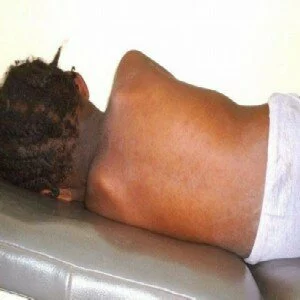Officials of the Ministry of Health are reporting an outbreak of measles in the country. The news of the latest pandemic comes at a time when Liberians are sitting tightly and patiently waiting pronouncement from the World Health Organization (WHO) that their country has reached the 42-day period and are now Ebola-free.
As it stands, Liberia would be declared Ebola-free on May 9, 2015 if a new confirmed Ebola case is not reported.
The deadly Ebola virus disease (EVD), like the years of civil war in Liberia, has had devastating impacts on every sector of the nation’s recovery. Unlike the EVD, which affects every person, who comes in direct contact with an affected person irrespective of age, the measles virus mainly only affects children and can be easily vaccinated against.
Measles, also known scientifically as morbilli or rubeaola, is a highly contagious infection and is also an airborne disease, which spreads easily through the coughs and sneezes of affected children. The sickness brings with it a red, flat rash which usually starts on the face and then spreads to the rest of the body. It typically begins three to five days after the start of the symptoms.
In Liberia, though the Ministry of Health had been carrying out vaccination campaign against it, most Liberian parents and guardians of children affected, can administer, in addition to the vaccine, an unorthodox therapy — CANE JUICE. Cane juice is the locally produced fermented liquid from sugar cane. The children are made to drink a quantity of the juice and some are rubbed on the children’s skins.
Giving an update to media executives over the weekend about the measles outbreak in the country, Pharmacist Adolphus T. Clarke, Deputy Program Manager, Expanded Program on Immunization (EPI) at the Ministry of Health, said as it stands at least 363 cases from 10 of Liberia’s 15 counties, have been reported.
Mr. Clarke also stated that 245 children, who are between the ages of nine to 59 months are the group most affected. They made 67 percent of the total number. Touching on their response effort so far, he added that response measures are being intensified with non-selective vaccination to six to 59 months old children. Counties worst affected yet are Grand Bassa with 134 cases, followed by Margibi with 85. Montserrado with 65 comes next in line as Sinoe with 26 follows. The least recorded figure so far is in Nimba -2; as Bomi, Grand Kru, Grand Cape Mount, Maryland and River Gee reporting no case(s) yet.




No Comments